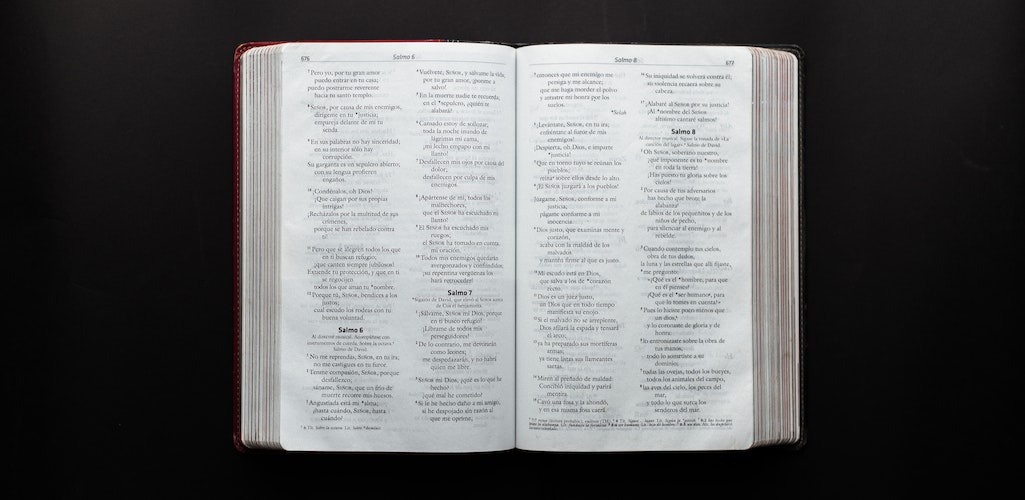Therefore, Now No Condemnation!

The first few verses of the 8th chapter of the Epistle to the Romans are the summing up of the truths opened out in the three preceding chapters of that epistle, and the result of these truths is stated in these glorious words—
“There is, therefore, now no condemnation to them which are in Christ Jesus” (Romans 8:1).
Two reasons are given for this statement: the first, based upon the doctrine of the 6th chapter; the second, upon that of the 7th. God has His “therefore” for the security of His people, and it is their privilege to be aware of it and to see that their “therefore” is God’s.
Reason 1. “For the law of the spirit of life, which is in Christ Jesus, has made me free from the law of sin and death.”
What is the law of sin and death? We speak of laws in nature by which, for example, the sun shines and the summer goes, and in virtue of which laws the natural world continues in its course. And, as there is a governing law in nature, so there is, spiritually speaking, one over man, and that is “the law of sin and death.” God did not make man subject to this; He made him innocent of sin, and not under the necessity of death; but since the fall, the law of sin and death rules over man.
Man is helpless to vary the law under which he finds himself. Just as the fish, which, at the approach of danger, fly above the waves, man may make efforts to be free from sin, but his very efforts only demonstrate his inability to deliver himself. The short flights of the fish do not change them into birds or deliver them from the law of their existence, and they soon drop again into their native element; and man cannot elevate himself out of himself. Nor does he, by efforts to rise above himself, escape from the law under which he is born.
Condemnation is attached to this governing principle of sin and death. Man gravitates to destruction, as the apple falls to the earth. Man does not rise to glory, as the flame ascends upwards. It is not in man’s being to direct his course to God and to heaven; alas, it is his nature to get as far away from God as possible, and to tread the broad road.
The extent of this terrible law of sin and death is as wide as the circle where the law of the spirit of life in Christ Jesus is not found. Everywhere outside of Christ, man is under its power, and wherever he may be, in heathendom, Christendom, circles moral and religious, or in those debased and profane, it matters not.
Let us suppose ourselves in wintertime in the arctic regions. No sun is visible, and night continues for many months. The only way to escape from the long, long night would be to quit the arctic regions and to travel southwards, where the law of daily sunrise and sunset holds sway. To light a candle in the arctic night would not change the character of the long darkness, and man’s search after light amounts, at the very highest, to nothing more than illuminating his night; no efforts of his produce the sunlight or bring him out of nature’s darkness into the marvelous light of God.
But we are made free from the law of sin and death. God has by His Spirit communicated a new life to us. The spirit of life which is in Christ Jesus has met us in our helpless and condemned state, and, being in Christ, who is risen, we are lifted up out of our former condition. The Christian lives in another element from that which was natural to him, and his life exists in Christ Jesus alone.
We may use in illustration of the law of the life, which is in Christ freeing the believer from condemnation, that creature typical of resurrection—the butterfly. And who, not knowing its marvelous history, could believe that the slow, creeping caterpillar, becomes the swift and gloriously winged butterfly? It groveled and fed amongst the leaves till the time arrived for freedom from its first state. Then it died to its first state and thus entered upon its chrysalis condition. Death terminated its former existence and its first history, and out of death it rose a creature of beauty to live a new life, to feed upon different food, and to flutter through the sunshine.
Yet far more wonderful is the moral change, the change in habit of life, bent of thought, energy of mind, yes, the whole existence of him whom God has truly converted. The evidence is unmistakable, and commands even the respect of those who are not in Christ Jesus. Such an instance is now before us. A man, whose whole life of some forty years had been spent in the pursuit of every kind of evil that could possibly engage him, was turned to God suddenly under the preaching of Christ. His townsmen confess to the unmistakable reality of his new life, his old companions bow before it, and his home testifies to it. Nature’s miracle of new life, from the caterpillar to the butterfly, is not to be compared with this miracle of God’s grace, which has changed a ringleader in iniquity to a pattern of piety and gentleness.
The Christian has died with Christ to his former state, and out of Christ’s death, in the power of His resurrection, he has the new life, and thereby is freed from the old governing law of sin and death. The Spirit of life, which exists alone in Christ, has wrought the believer’s deliverance. He does not belong to the old, judged state, and being in Christ, “there is, therefore, now no condemnation.”
Reason 2. “For what the law could not do, in that it was weak through the flesh, God, sending His own Son, in the likeness of sinful flesh, and for sin, condemned sin in the flesh.”
The law given to man by Moses was rendered ineffective for producing righteousness in man, by reason of the incapacity of man’s moral being for obedience to its behests. It was weak through the flesh. The best of laws will not make men good. “The flesh,” like an intractable and hopelessly dull scholar, yielded no result to the commands of the “Schoolmaster.” And this went on up to the time of, or until, Christ. (Galatians 3:24.) Then God, who gave the law, sent His Son into the world in the likeness of sinful flesh, not to perfect the work of the law, not to add to its instruction or to continue its efforts to produce good out of man, but to die in the stead of the intractable and unteachable scholar: man. God sent His Son into the world for the question of sin. The law had relation to sin. It forbade sin. Christ came and took up and determined the question. It was by forsaking Him who was His own Son upon the cross that God condemned sin in the flesh, and this God did to deliver us, so that, being in Christ Jesus, and having a new life, and a new force in Him, the righteous demands of the law might be fulfilled in us, who walk not after the flesh, but after the Spirit.




